The mortal remains of former Prime Minister Dr. Manmohan Singh reached Nigambodh Ghat in Delhi today, where his final rites will be performed with full state honors. The nation continues to mourn the loss of the visionary leader and economist, whose passing marks the end of an era in Indian politics. Dr. Singh, who served as the 13th Prime Minister of India, passed away at the age of 92, leaving behind a legacy of reforms, humility, and service.
The procession carrying Dr. Singh’s body to Nigambodh Ghat was attended by family members, close associates, and top political leaders. Crowds of citizens gathered along the route to pay their respects, reflecting the deep admiration the former leader commanded across political and social spectrums. Draped in the tricolor, his body was placed on a ceremonial platform, as soldiers stood guard in tribute to the leader’s immense contribution to the nation.
A Nation Pays Tribute to Its Visionary Leader
Since news of his passing broke, tributes have been pouring in from leaders, dignitaries, and citizens across India and abroad. Prime Minister Narendra Modi, in his condolence message, described Dr. Singh as a leader whose vision and reforms laid the foundation of modern India. President Droupadi Murmu and Vice-President Jagdeep Dhankhar also expressed their grief, highlighting his exemplary service to the nation and his reputation as a man of integrity and wisdom.
Leaders from opposition parties, including Sonia Gandhi, Rahul Gandhi, and Mamata Banerjee, attended the memorial services held earlier in the day. Rahul Gandhi, addressing the press, referred to Dr. Singh as a “beacon of hope” who guided India through critical economic challenges with grace and resilience.
The international community, too, expressed its condolences. Leaders like US President Joe Biden and former UK Prime Minister David Cameron remembered him as a leader who strengthened global partnerships and brought India to the forefront of the global economy. Nobel laureates and economists have lauded his significant contributions to economic reforms, particularly his pivotal role in liberalizing India’s economy in 1991.
Last Journey at Nigambodh Ghat
The cremation ceremony at Nigambodh Ghat is being conducted with full state honors, a mark of respect accorded to distinguished leaders who have served the nation. Security has been tightened in and around the cremation site, with arrangements made for dignitaries and officials to pay their final respects. As the funeral pyre is lit, the nation will bid a final farewell to a leader who left an indelible mark on India’s economic and political landscape.
Dr. Singh’s family members, including his wife Gursharan Kaur and daughters Upinder and Daman, were present during the procession and ceremonies. Congress leaders and other prominent politicians stood in solidarity with the family, reflecting the deep respect Dr. Singh commanded across party lines.
Legacy of Reform and Leadership
Dr. Manmohan Singh’s contributions to the nation remain unparalleled. Born in 1932 in Gah, now in Pakistan, he rose from humble beginnings to become a globally respected economist and statesman. As Finance Minister in the 1990s, he played a key role in steering India out of an economic crisis, introducing liberalization reforms that transformed the nation’s trajectory.
During his tenure as Prime Minister from 2004 to 2014, India witnessed major policy initiatives such as the Mahatma Gandhi National Rural Employment Guarantee Act (MGNREGA), the Right to Information Act (RTI), and significant advancements in infrastructure and social welfare. Despite facing challenges, including political controversies, Dr. Singh maintained a reputation for dignity, humility, and focus on development.
A Symbol of Integrity and Humility
Dr. Singh was widely regarded as a leader who prioritized national interest over personal or political gain. Known for his soft-spoken demeanor and intellectual acumen, he earned respect not only within India but also on the global stage. His ability to navigate complex economic and geopolitical challenges without compromising on principles made him a revered figure.
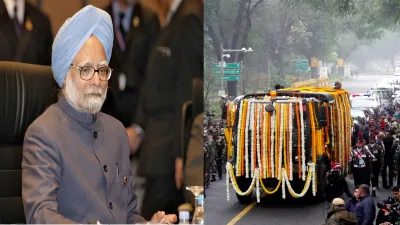
While his tenure as Prime Minister saw its share of controversies, his legacy as a reformer and nation-builder remains intact. Economists, political analysts, and citizens alike remember him as the architect of modern India, whose policies helped position the country as a global economic powerhouse.
Public Reaction and Mourning
The news of Dr. Singh’s passing has led to widespread mourning. Citizens from all walks of life have taken to social media platforms to share their condolences and memories of the leader. Hashtags like #ManmohanSingh and #NationMourns have been trending, with people recalling his contributions to India’s growth and stability.
Read More:
Seven days of national mourning have been declared in his honor, during which the national flag will fly at half-mast across the country. Schools, colleges, and institutions have also held prayer meetings and discussions to commemorate his legacy.
The Path Forward
As the nation bids farewell to Dr. Manmohan Singh, discussions have already begun about how best to preserve his legacy. Congress leaders have proposed the establishment of a memorial dedicated to him in Delhi, celebrating his life and contributions. Some have suggested renaming key institutions or infrastructure projects in his honor as a lasting tribute.
Dr. Singh’s passing marks the end of an era, but his work continues to inspire generations of leaders and citizens. His vision for an inclusive and economically strong India remains a guiding light, reminding the nation of the power of humility, integrity, and dedication in leadership.
As his mortal remains are consigned to the flames, India salutes a leader whose legacy will endure in the hearts and minds of the people for generations to come.


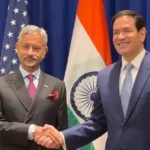
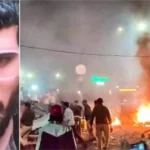



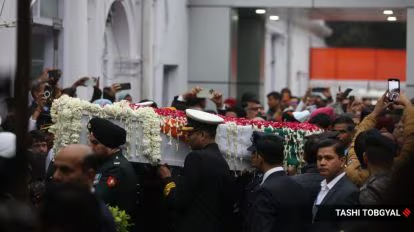
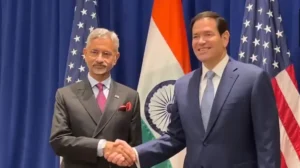
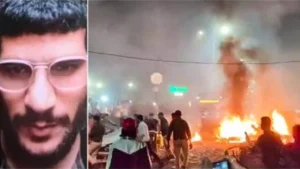
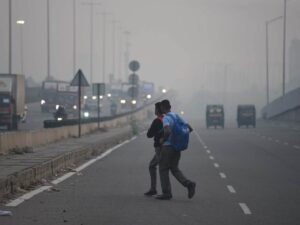
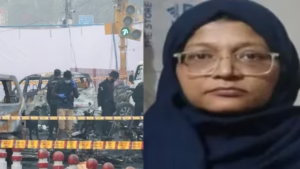
More Stories
‘They Don’t Need Our Help’: US Secretary of State Marco Rubio Praises India’s ‘Professionalism’ in Delhi Blast Probe
DNA Test Confirms Pulwama Doctor Drove Car in Delhi Red Fort Blast; Lal Quila Metro Closed Amid Security Alert
Who is Dr. Shaheen Shahid? The Professor-Turned-Jaish Recruiter Arrested in a Terror Module Case